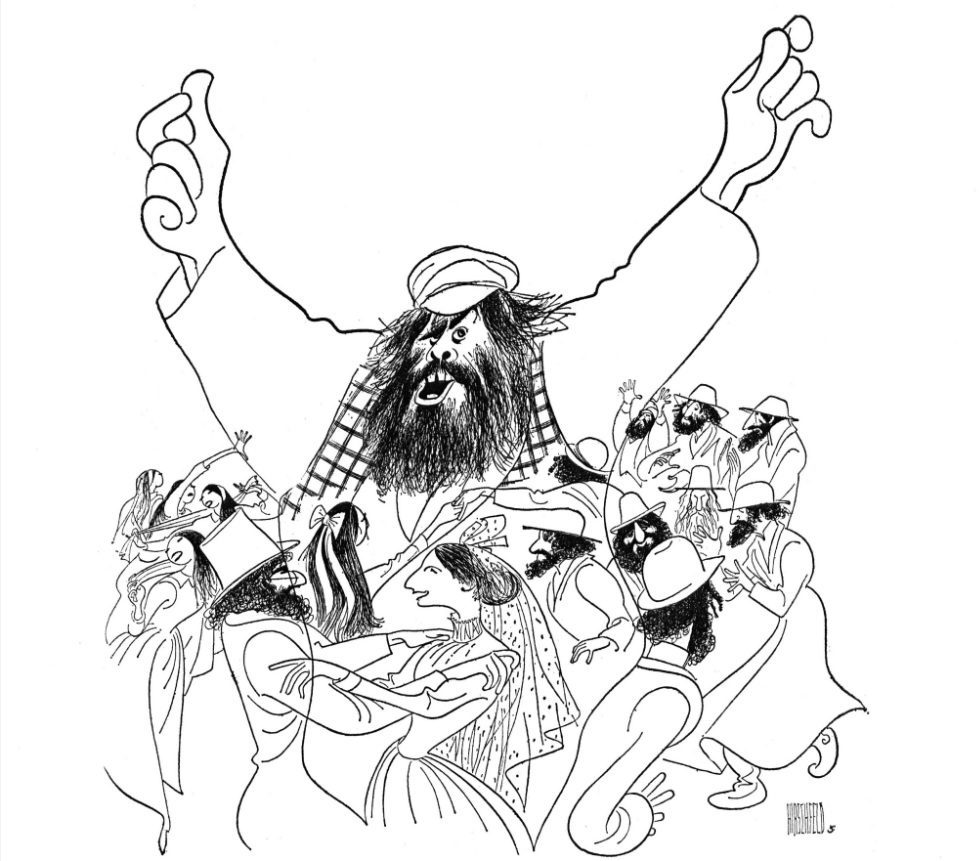Illustration for the play Fiddler on the Roof, starring Zero Mostel, Al Hirschfeld, New York 1964
Must Know
Tuvia the Milkman was written by Sholem Aleichem. It was published in Yiddish in 1894 and translated to hebrew by his son-in-law, Isaac Dov Berkowitz, in 1950. The novel served as a basis for plays, musicals, and films. The protagonist of the novel is Tuvia the milkman, a poor and hard-working Jew, living with his family and seven daughters in a typical Russian town in the 19th century, in a period of pogroms and deportations, that led to the emigration of Jews to Europe and America. he has difficulties dealing with the generation gaps and the troubles of his older daughters which causes him a dilemma: whether marrying them off to well-established or intelligent students through matchmaking or letting them to get married to their own choice. Tuvia spices up his stories with verses from the Torah, the Talmud, the Mishnah, the Midrash, and the Aggadah, filling them with new meaning that entertains and adapting them to the message he wants to express. Despite all the troubles he encounters – financially, familywise, and existentially – Tuvia is full of humor and optimism thanks to his faith in God.
More Info
The story was made into the play “Tuvia”, starred by Maurice Schwartz. It is one of the most successful and most famous play among the performances of the Yiddish Theater in New York, which even had a successful cinematic incarnation in 1939. In 1943, the play was staged at the Habima Theater by Isaac Dov Berkowitz. The story was published in its musical adaptation by the Jewish-American playwright Joseph Stein, composer Jerry Bock, and director and choreographer Jerome Robbins, and it was starred by Zero Mostel. The musical is called “Fiddler on the Roof”. His name “fiddler” is taken from the work of Marc Chagall. The play was first staged at the Broadway in 1964, and later adapted and starred by Chaim Topol. The musical contains 13 songs that reflect the Jewish folklore in Eastern Europe. The plot in the play and in the films differs in many aspects from the original plot written by Sholem Aleichem. In 1968, an additional movie adaptation was made by Menachem Golan: “Tuvia and his Seven Daughters”. The work “Tuvia the Milkman” is full of rich Jewish humor. The Jewish musicals of these period were characterized by melodies, that were based on Jewish prayers, but always had a universal theme, like here: the generation gap in traditional societies characterized by the tension between tradition and modernity. Japan is one of the countries where the musical has received much sympathy, even today.

